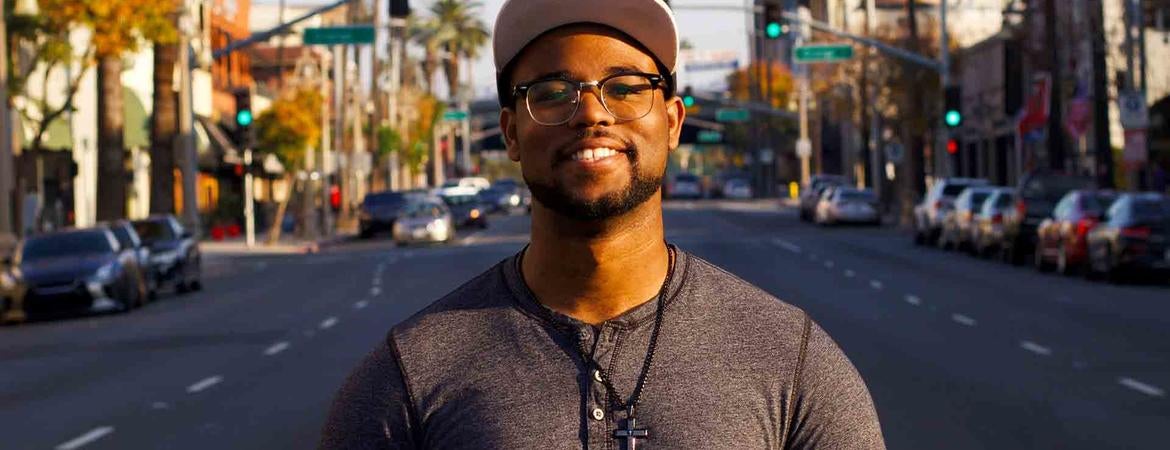
Just like everyone else, Chris Page had to pivot during the pandemic. As leadership development director for UCR’s Black Student Union, the fourth-year business student is creating a structure to teach best practices in leadership to his fellow members. His preference for in-person activities has been thwarted by COVID-19 restrictions, so he’s turned to social media.
“Right now, we are exploring basic leadership principles, including understanding the different types of leadership and the situations in which each of us fits best,” says Page of his digital sessions. “We are also looking at how the values of a leader trickle down and contribute to the culture of an organization.”
Set to graduate this year, Page will likely not be able to interact on campus with the younger students he targets with his Black Student Union leadership program, but he’s steadfast in his determination to “put together a program for this position and how it should be run in the future,” he says. “The program is also about reaching out to different community organizations or finding things that may be done around the community. Students can then use what they’ve learned to apply leadership theories generally or within political leadership, political activation, and as part of community organizations.”
This project during the final quarters of Page’s undergraduate career is an obvious culmination of both his academic and extracurricular activities at UCR. During his studies toward a Bachelor of Science in business with a management concentration, he says, “I am not so focused on accounting or finance or supply chain operations and what business does. I’m more interested in how the people inside the business get it done.
“I’m studying how I can make functions perform better than they were before. I enjoy the fact that business is a system in which a bunch of people have to work together.”
He puts this attraction of what he calls the “science of leadership and cooperation” into practice with his many volunteer and student club activities, which stretch well beyond his current involvement in the Black Student Union. He’s played intramural soccer, served on the Associated Students Program Board in the marketing division, and was the chairman of the design production committee for Future Business Leaders of America, a group that, he says, was the first “sense of family” that he had on campus.
He’s currently an ambassador with the undergraduate UCR School of Business Ambassador program, a group of students who support the school’s many events for the business school community. As an honors student during his first two years, Page also found what he calls “one of the best friend groups I could’ve asked for of super-motivated students.”
He kicked off his college career as a campus safety escort—a program that provides a buddy to walk with at night. “I was happy to do so because I always want to find some way to give back to my community to support it,” says Page. “And if I can help people feel more safe, it just makes sense to do so.”
It is his experience working for campus housing that has most shaped his Highlander years. “I worked in housing for my whole time in school, and I was a supervisor for the Glen Mor office,” says Page, but, of course, with minimal residents on campus currently, work for his team has been suspended. “I loved what I did there, and it was a big part of my experience,” he adds. “I was able to practice the things I’d been studying: to build a team up and function as best it could. I also served as a mentor to the students who wanted to reach a similar position themselves.”
As a housing tour guide for prospective on-campus residents, Page “came out of my shell a bit, and gave people insight not just on what living on campus is like but what living the experience is like,” he says. He also credits Jamal Myrick, former resident director and current director of African Student Programs at UCR, with mentoring his journey through college. “Day by day, he would teach me something new,” says Page. “He helped me feel comfortable in housing and feel comfortable in general.”
As he looks to the future, he is determined to pay Myrick’s generosity forward with plans to pursue a master’s in organizational psychology. “I’d like to move into either human resources or general team consulting,” he says. “I think that will be a really cool niche for me.”